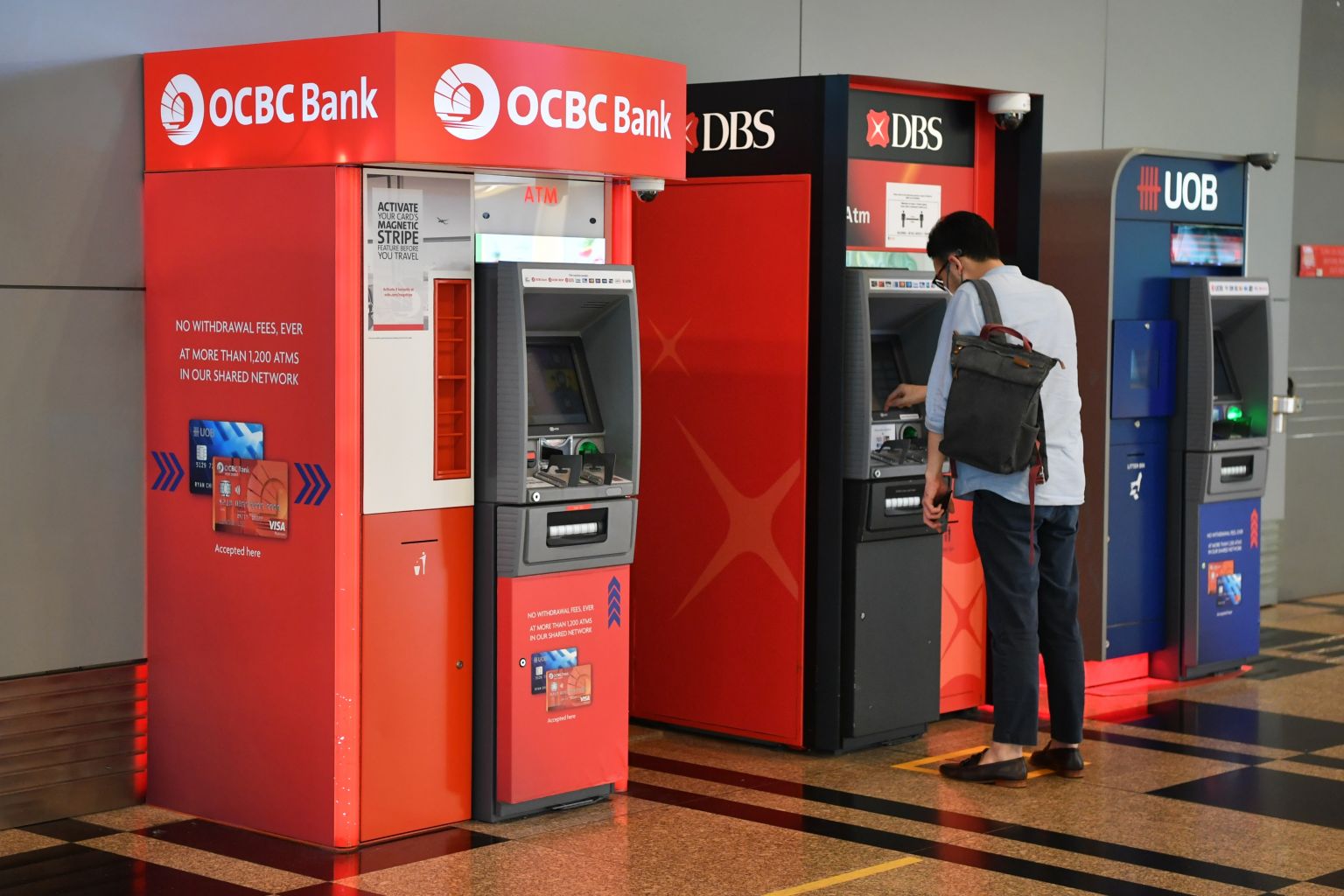Market Watch
Tussle between growth optimism, inflation fears
Market volatility expected in coming weeks as investors assess a slew of economic data.
Sign up now: Get ST's newsletters delivered to your inbox

Banks continued to provide the bulk of support, with DBS, UOB and OCBC recording total returns of some 22.3 per cent this year as they booked more than $1.8 billion in net institutional inflows.
PHOTO: ST FILE
The market is currently caught between fear over inflation and optimism about the upcoming economic recovery.
After see-sawing for much of the week, Wall Street indexes ended last Friday's session on a positive note after the latest United States employment data exceeded expectations, with first-time jobless claims falling to a new pandemic low of 406,000.
The Dow Jones index ended the week up 1 per cent at 34,529.45, while the broader S&P 500 index edged up 1.2 per cent to 4,204.11 and the tech-heavy Nasdaq gained 2 per cent to 13,748.74.
Singapore's Straits Times Index added 1.9 per cent last week, finishing at 3,178.55 points. Its total returns so far this year is 13.5 per cent. At Friday's close, it had rallied more than 30 per cent from last October's lows, and is just 15 per cent off its 3,600-point high in May 2018.
Banks continued to provide the bulk of support, with DBS, UOB and OCBC recording total returns of some 22.3 per cent this year as they booked more than $1.8 billion in net institutional inflows. According to Bloomberg data, analysts' consensus 12-month target price for OCBC and UOB shares has been raised to $13.85 and $29.78 respectively.
Among the stocks that have seen the highest net institutional inflows last week were OCBC, DBS, Singtel, Nanofilm, Singapore Airlines, Haw Par Corp, Genting Singapore, Riverstone, iFast and CapitaLand - demonstrating a mix of macro and micro focus.
Meanwhile, Singtel's restructuring is the latest in a trend where home-grown companies have reviewed operations, pursued restructuring, made acquisitions or divestments, or transformed product lines and services over the past 12 months in a bid to drive shareholder value. This trend is likely to intensify.
Inflation remained in the spotlight this month, despite prices driven largely by surges in commodity prices.
This concern is likely to intensify after the US core personal consumption expenditure index - a key indicator of inflation - rose a faster-than-expected 3.1 per cent last month, indicating price pressures building up in the rapidly expanding US economy.
Still, market experts like UBS' chief investment officer for Asia-Pacific Kelvin Tay do not see the Federal Reserve undertaking any tapering of its loose monetary policy before next January.
"As for the Fed funds rate, I believe the market is overly aggressive in its projections of the first rate hike," he said. "I believe the first rate hike won't happen till late 2023 or early 2024. This is because full employment won't take place till that time, and the Fed wants full employment before raising rates."
Nevertheless, Mr Vasu Menon, head of investment strategy at OCBC, sees increased market volatility ahead. "The tussle between growth and inflation will continue to contribute to market volatility in the weeks ahead as investors assess a slew of economic data," he said. "A new round of global PMIs (Purchasing Managers' Indexes) will offer insights into growth trends as economies reopen. Strong figures will boost growth expectations but may also lead to greater concerns about inflation, which is a key focus among investors now."
Inflation concerns have prompted more interest in gold.
The Singapore Exchange-listed SPDR Gold Shares ETF is up 6.5 per cent this month, with turnover already more than double last month's levels.
The Singapore Institute of Purchasing and Materials Management's PMI for this month will be released on Wednesday. The Markit Singapore PMI will be released on Thursday, followed by April retail sales on Friday.
All eyes on Friday evening will be on May US non-farm payrolls, while the flash estimate of the euro-area consumer price index for this month - due tomorrow - will be closely monitored as well. Base effects, rising demand and supply bottlenecks may drive up inflation and add to global worries about inflation and its impact on monetary policy.


